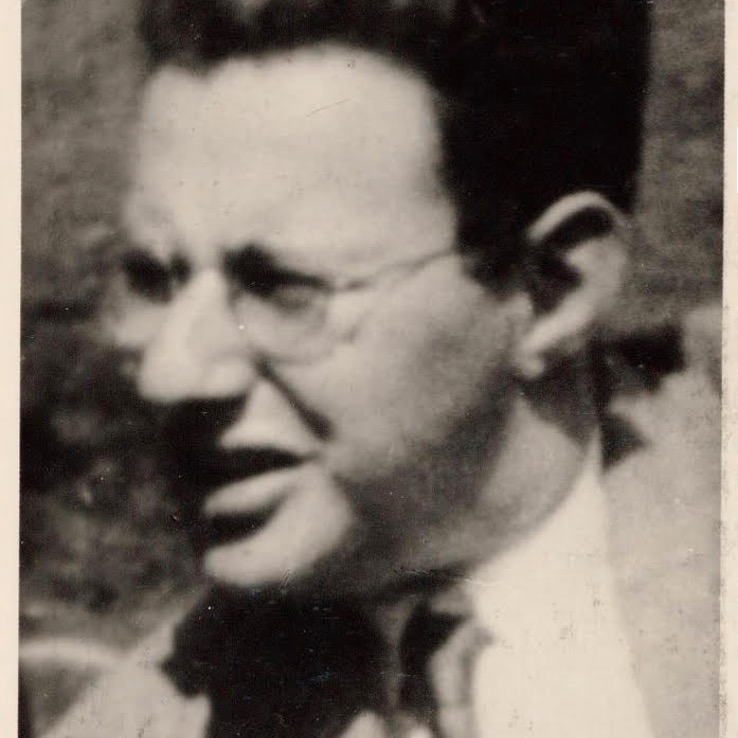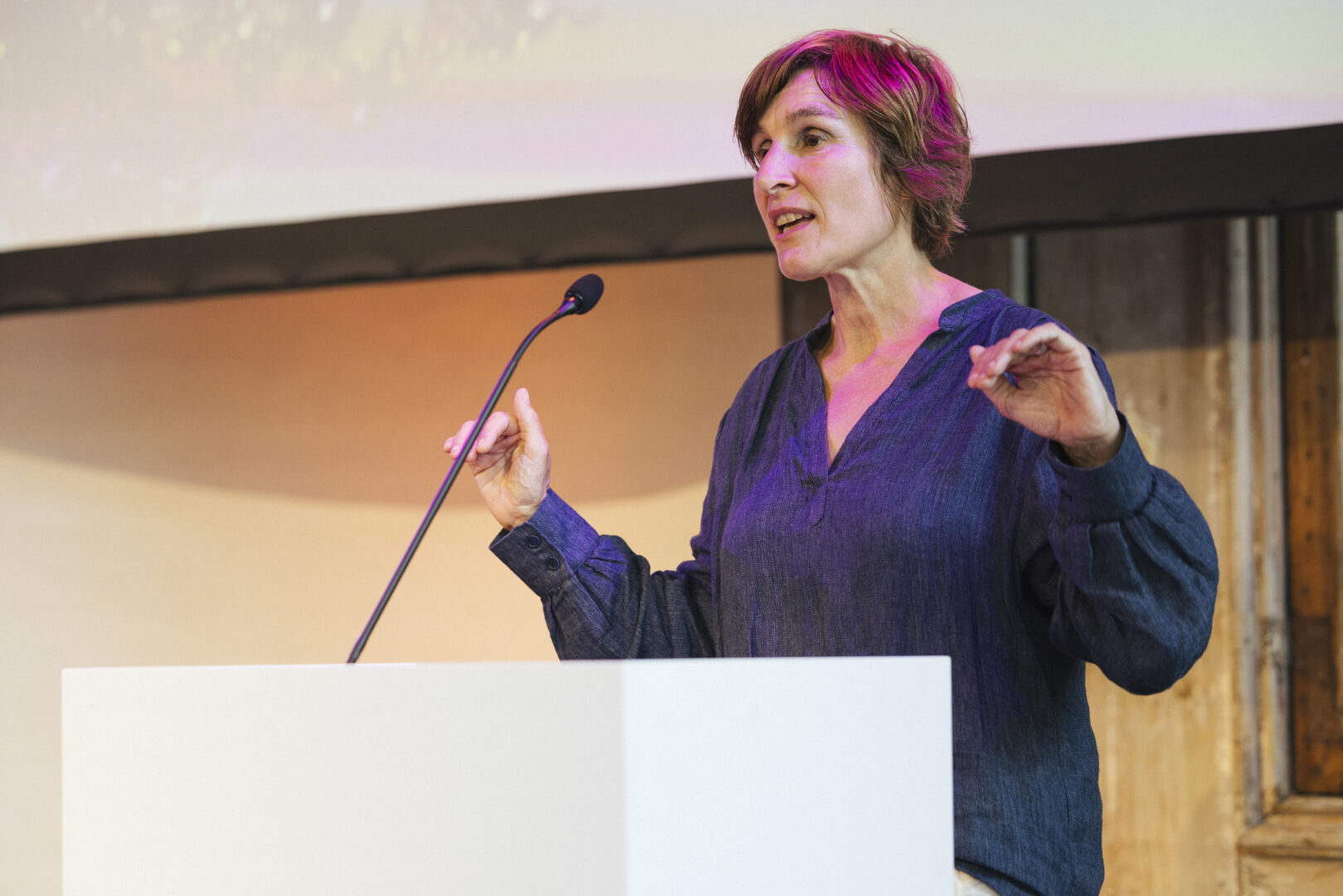
Political scientist and media expert Rasmus Kleis Nielsen: 'You have to invite to be heard'
The social contract between press and public is broken, says media expert and political scientist Rasmus Kleis Nielsen. 'It is becoming easier and easier for those in power to shrug off what appears in the press.'
Text: Casper Thomas
'Irrelevant and unloved.' The verdict on the press recently delivered by political scientist and media expert Rasmus Kleis Nielsen in the British Prospect Magazine does not lie. Yes, he agrees with the oft-repeated diagnosis of a 'crisis in journalism,' but insofar as anyone must be held responsible, as far as he is concerned it is really the newspapers, magazines and broadcasters themselves. The public is quite satisfied with the way it gathers information, even outside traditional media, according to Kleis Nielsen, based on years of surveys of news users. These studies were conducted by the Reuters Institute at Oxford University, of which he was director until recently.
At the same time, the public's judgment of journalism and news is 'pretty scathing,' according to Kleis Nielsen, recently appointed professor at the University of Copenhagen. In his essay, he lists the problems: half of the public believes that news media are too much guided by business interests. An at least as large group thinks journalists deliberately mislead the public to serve a political agenda. Trust in news outlets has fallen dramatically. Kleis Nielsen refers specifically to figures on the United Kingdom, but his diagnosis easily translates to the state of most democracies. 'The press likes to think of itself as a watchdog. In the eyes of large sections of the public, it is more like a lapdog,' he writes.
Kleis Nielsen arrived at this conclusion through more than 15 years of studying how news media and the societies they serve relate to each other. He garnered praise for his book Ground Wars (2012), a study of how campaign teams in the United States discovered 'personalized political information' as a tool to win elections. In The Power of Platforms (2022), Kleis Nielsen analyzed how news media became dependent on digital channels for their distribution, resulting in companies such as Google, Facebook and Twitter becoming more powerful players. His most recent book, Avoiding the News, which he co-authored with media researchers Benjamin Toff and Ruth Palmer, is devoted to the phenomenon of the 'news avoider'. The fact that more and more people are consciously cutting themselves off from the news, according to this trio, is not simply due to the nature of news coverage. A complex interplay between identity, ideology and the infrastructure through which it is disseminated means that for many, news 'does not fit into daily life'.
Thus Kleis Nielsen's research spans the years of digital transformation, when traditional media distribution channels - the printed paper, the programmed television station and the radio station - faced competition from the kaleidoscopic landscape of social media, digital platforms and podcast channels. Control over what content is available at what time thus shifted from provider to user. This transformation - Kleis Nielsen, as a scientist, sees it simply as a development and prefers not to attach any normative qualifications to it himself - has reached a critical point. And that means loss of connection between news media and audiences, resulting in plummeting circulation and viewing figures.
'You have to see the relationship between the press and society as a social contract,' Kleis Nielsen explains in a conversation taking place in Amsterdam. Both parties have expectations of each other, and the mutual relationship only works if both participants feel that the other complies with the informal content of that contract. That's exactly where things go wrong, according to Kleis Nielsen. “The contract has unraveled, not because people can no longer access journalism. His surveys show that people's needs have changed little: they still want relevant, reliable and independently gathered information - so those ideals of journalism are widely appreciated. 'But,' he concludes, 'the point is that large parts of the public no longer believe that existing journalism can provide this.'
And so citizens have been looking for alternatives. Their media consumption has been 'unbundled,' he says, into 'a collection of separate voices and sources' mixed with information from their own social circle. The classic idea of a public domain where a fixed set of providers provides people with their news and information has given way to a system where competing, commercial companies offer a lopsided mix, via inscrutable ranking and algorithms. The group to whom a small shiver goes down the spine upon hearing this diagnosis is a minority. 'It is mostly journalism itself that sees its work as a kind of public good,' Kleis Nielsen said. 'When they talk about a crisis, they are basically talking about the sum total of millions of citizens who choose to spend their money and time elsewhere and generally do so in full awareness and satisfaction.'
We have slowly but surely grown into this situation, according to Kleis Nielsen. 'Initially, there was a certain naiveté among publishers regarding digital platforms,' he says. Players like Google were warmly welcomed because it was a way by which digital news could be unlocked. Then it turned out that search engines were platforms that also attracted many advertisers, shifting an important flow of money from media themselves to the new distribution channels. Then Facebook made its appearance and that platform was also welcomed, especially as an alternative to Google's algorithms. The same recipe repeated itself: publishers pounced on Facebook, but it soon became apparent that Facebook itself was also competing for attention and using inscrutable algorithms. And so it goes every time a new platform emerges. Publishers switch en masse because they want an alternative. 'The sum of it all,' says Kleis Nielsen, are a lot of ‘unhappy marriages’ between journalistic media and digital platforms.'
And meanwhile, we are seeing the results. The owners of the platforms that the press chooses for its coverage will be in the front row when Trump is sworn in.
'The main reading of Trump's inauguration has been that the tech sector has always had a libertarian-right leaning, and now has simply known color. But that's a little too simplistic for me. Musk in particular sat there out of full ideological conviction. For the others, they made business considerations: being taken to task by the erratic Trump is bad for business results. And so they bowed. Zuckerberg was even personally threatened with jail time by Trump. This kind of corporate hypocrisy is nothing new; big companies always want to be in the national powerhouse's good graces and engage in the necessary trappings to make that happen. Nevertheless, we must pause to consider what this means: European news media have made themselves largely dependent on American companies that ally themselves with a president hostile to Europe. The good relationships that publishers in Europe, Canada and Australia had with American tech companies suddenly look a lot less rosy.'
Is this going to be used as a weapon against Europe?
'You shouldn't rule anything out in the case of Trump, but I think the situation with digital platforms is different from other ways Europe is connected to the US. The dollar, military aid; it can all be easily used by Trump as tools to pressure other countries. With tech companies, it is not so easy. Europe is rich, has a lot of talent and is its own market in itself, where many of these companies earn more than in the US itself. It would be catastrophic for them, and thus for the U.S. economy as a whole, if they somehow lose market share in Europe because they become part of a political game.'
So we continue on the old path, where a mix of in-depth reporting and interpretation has been traded for entertainment, lifestyle and superficial news, without consumers being dissatisfied?
'That would suggest a kind of false consciousness, but I don't believe in that. My point is not that the public is by definition sufficiently informed and infallible in its judgment. My point is that if people are increasingly abandoning traditional news media and getting their information from other sources, journalism should take that as its starting point. You won't get higher circulation or ratings with the proposition that people should actually spend their time differently. And frankly, it is also journalists themselves who take in less and less news and have fewer paid subscriptions. Even if everyone behaved like a professional journalist, the industry would still be in crisis.'
At the same time, some titles do just fine. You mention them in your article: The Guardian, The Economist, Financial Times.
'These are examples of what I call haut haut bourgeoismedia. They primarily serve an affluent, highly educated and often older audience that is particularly interested in politics. That said, outside of that, the news media are rapidly losing their audience. In this way, the press is beginning to resemble classical music or contemporary art: very important to a privileged minority, while the masses are indifferent to it. But of course that can be a long-term tenable situation, especially since haut haut bourgeoisjournalism has an audience that can and will pay for the product.'
From a historical perspective, it would not be the first time that journalism became a niche product, Kleis Nielsen explained with a brief history lesson. 'News publishing began as a tool in which the voice of governments sounded toward citizens. This was followed by a phase of more autonomous news publishing, in which media was mainly a way in which political and commercial elites exchanged information and discussed among themselves, fairly autonomous from the state. Then came the great commercial revolution of the late nineteenth and early twentieth centuries, when news publishing became a mass enterprise, driven by commercial advertising. At that time, journalism also emerged as a professional profession because all those newspapers had to be filled every day.
Our image of journalism has stuck more or less there, with the journalist as a craftsman who, within a large, bureaucratic organization, informs the public on a daily basis about a variety of topics. Only the foundation under this image has been eroded. That type of journalism needs a larger financial base than only an elite can provide. I can well imagine journalism returning to something akin to the situation before the commercial revolution, when titles were extremely expensive, had limited circulation and were run by a few editors who garnered freelance copy for a small cross-section of readers. But whether it is desirable from the point of view of journalism as an institution is another question.
What are the risks?
'Either way, information inequality is increasing. The public as a whole may consider itself sufficiently informed, but the educated, affluent section believes that they are the only ones really well informed and the rest are not. This reinforces the already existing clash in views and values between elites and the rest. And the function of the press as a counter-power is eroded. How can you hold power accountable and engage in naming and shaming if you don't have a large public that takes notice? So it becomes easier and easier for those in power to shrug off what appears in the press, because the risk of losing followers is getting smaller and smaller.'
So only elite media are a danger to democracy?
'Yes, although I hesitate to conclude that the current changes in the media landscape are a cause of democratic erosion. Recall that democracy in the sense of free elections, a rule of law and individual rights also existed before mass media entered the scene. The other reason is that the public can feel well informed and involved in politics without necessarily consuming traditional media. Thereby, being extensively informed is not a requirement for political participation. Voters are perfectly capable, without journalistic input, of voting for someone they feel will serve their interests. Low information rationality is called that in political science.
The argument that people would be adequately or inadequately informed has traditionally always been used to exclude groups based on class or skin color from politics. I do not want to deny concerns about democratic erosion, but I do question the dominant narrative that democracy is in crisis because the public does not take sufficient notice of what appears in certain types of media. This is a complaint that comes mainly from the journalistic profession itself. And it seems to miss its audience more than the other way around. In any case, that complaint does not work to reach a wider audience.
What does work?
'I don't like to dictate to others how to do their work, but if journalists and news publishers want to renew the social contract with the public, they will have to take responsibility for it themselves. It will not come from the public, which does not perceive the idea of a crisis as such. Survey after survey shows that large sections of society find the news irrelevant and depressing. It gives them a sense of powerlessness.
With that as a starting point, you can ask yourself how to reach readers or viewers in the mental state and social position they are in. Delivering message after message making it clear what is going wrong in the world is not the way to get that done. You can also provide a perspective for action. The idea that people are handed information and assume that they will act on it automatically does not fit with how communication works in our societies. I see many media publishing excellent pieces, but they remain purely contemplative. It informs, but does not prompt action. Without the question of 'what to do' you might as well, then, read Julius Caesar's diaries on the conquests of Gaul.'
'Impress rather than depress,' you write in your article in Prospect Magazine.
'That's part of it, too. A medium should invite to be heard, not direct people to their message based on fear. The premise that if the world becomes increasingly miserable, people will naturally find their way to journalism is, in my opinion, incorrect. It is much more important to forge strong ties between the public and the press. And that starts with a clear idea of what place a medium has in an individual's life.
Not every publication needs to reach everyone. It's about finding a sense of connection between title and audience. People need to feel that a certain kind of journalism belongs to who they are. In that way, media have always played a role in shaping communities and social movements. Maybe journalists can think about how to play that role again.'
Stichting Democratie en Media is conducting a series of interviews with various thinkers about shared reality. Of those, this interview was the first, in collaboration with De Groene Amsterdammer. Other episodes can you find here .
Stay up to date on new articles in this series?
Enter your email address below and we'll send you an email when new articles in the series on Shared Reality arrive.


